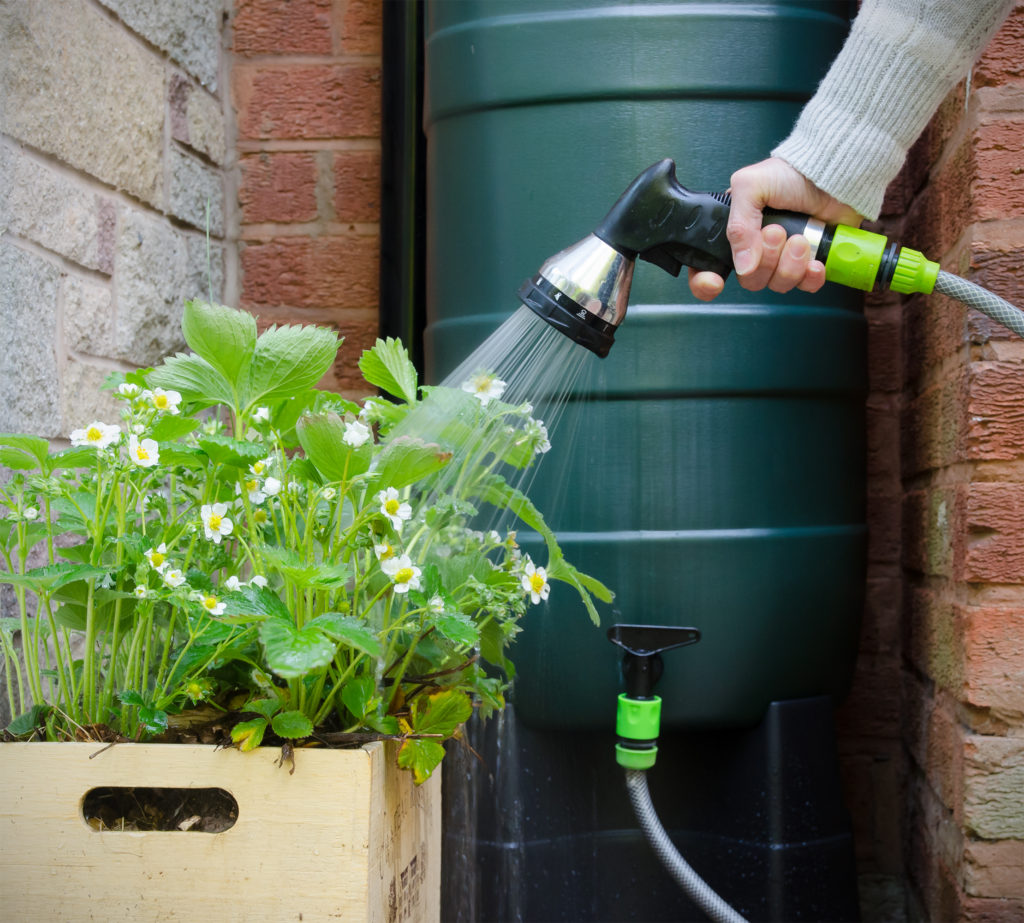They say character is what you do when no one’s watching. While some environmental actions (like attending a protest or planting a tree) might seem more “share-worthy,” collectively, even the smallest actions can add up to significant impacts. So whether you’ve never considered yourself an environmentalist, or you’re new to the movement and are looking for a good place to start, we’ve drawn up this list of small steps you can take at home today to become a more sustainable resident of Spaceship Earth.
For easier reading, we’ve divided up this list according to different sections of the home. No matter where you are or what your favorite room in the house is, there’s definitely some way to green it up. That said, please don’t feel pressured to implement everything on this list overnight! Habits-change and systems-change take time, patience and probably a good amount of trial and error. What works for one person may at the very least need to be adjusted to better suit someone else’s resources and lifestyle.
Above all, remember that it’s much better to have a million people doing environmentalism imperfectly than just a handful doing it perfectly.
So without further ado, let’s get greening!
IN THE KITCHEN
- Green Up Your Diet
- The food you eat every day has a huge impact on the planet. According to the United Nations, about a third of all human-caused greenhouse gas emissions are linked to food. Thankfully, adopting a more sustainable diet is one easy way to start making a difference. And you can start small, for example, opting for organic veggies when possible, visiting your local farmer’s market or swapping one protein a week for a plant-based option. (Luckily, the list of plant-based meat alternatives is always getting bigger and better!)
- Start Composting
- Composting is another foolproof, year-round practice for reducing food waste and living sustainably in the kitchen and the garden. Organic material items like potato skins, egg shells, fruit peels and old newspapers naturally decompose, making them the perfect items to add to your compost pile, and if you’re lucky enough to have your own garden space, it’s the perfect way to add nutrients back into the soil to nourish fruits and veggies. The City of LA also offers free weekend composting workshops at municipal facilities throughout the year, with compost bins and other tools available for purchase while supplies last. Check this link for all upcoming workshop dates – registration is required.
- Make Your Own Cleaning Products
- When it comes to green cleaning, white vinegar is about to become your new best friend. With a little elbow grease, you’ll be able to tackle everything from your stinky garbage disposal to your mildew-y shower and grease-splattered cooktop — all without any exposure to toxic chemicals.
- Lose the Single-Use Products
- Single-use is the name of the game in the kitchen, especially when it comes to our storage and cleaning options. But if you think about it, there’s really no reason we can’t make more sustainable choices here too, for example, trading out conventional trash bags for biodegradable alternatives, or opting for eco-friendly bar dish soap that’s gentle on both your dishes and the planet. Other swaps include replacing plastic scrub brushes with bamboo versions and making the shift from paper towels to reusable and washable cloths. And did we mention that zero-waste kitchens also tend to be super cute?
IN THE BATHROOM
- Be Water-Wise
- Just .4% of the Earth’s water is freshwater, and far too much of that gets wasted every day. You can make a huge impact by reducing your water usage, taking shorter showers, fixing any leaky faucets around the house or even sticking something heavy into your toilet tank to reduce the amount that gets flushed down the drain. By being conscious of how we consume water, we can play a pivotal role in conserving this precious resource that’s particularly vital for our region.
IN THE CLOSET
- Buy Second-Hand Clothing
- Believe it or not, the fashion industry is the second most polluting industry in the world, contributing 10% of humankind’s carbon emissions. There are plenty of moving parts to this, from production to shipping to disposal. But instead of perpetuating the cycle by buying all-new pieces, consider picking up “new-to-you” items from thrift stores, second-hand shops and garage sales to help reduce waste and save money! Bonus points if you skip the “buying” part entirely in favor of a closet swap with your closest friends. Saving money and socializing – it’s a win-win!
IN THE OFFICE
- Unplug Idle Electronics
- According to the Natural Resources Defense Council, the expense of idle yet plugged-in devices stands at approximately 19 billion dollars annually in the US. That’s not all – during this same time frame, a staggering 44 million tons of carbon are needlessly generated from those unused devices. By adopting simple practices like using power strips for unplugging multiple items at once and remembering to unplug infrequently used devices, we can make a considerable difference.
IN THE BACKYARD
- Get Outside More
- Step away from your electronics and spend more time outside! Studies show that spending as little as 20 minutes outside reduces stress and anxiety, and even helps you sleep better! They also suggest that the more time you spend outside each day, the more likely you are to behave in environmentally-friendly ways, such as recycling, riding a bike, buying eco-friendly products and so much more. So the next time you’re eyeing that online purchase for a quick dopamine boost, head outside for a half-hour and see if that doesn’t do the trick.
- Consider Installing a Rain Barrel
- Rain barrels are smart water-saving tools that collect rainwater from your roof for later use on lawns, gardens or indoor plants. This reduces runoff from your property and provides free water for your landscape. You can easily find rain barrels online or buy them at hardware stores. The Los Angeles Metropolitan Water District also offers a rebate for barrels 50 gallons and larger. These barrels not only help save water but also help promote a greener future for our outdoor spaces.
EVERYWHERE
- Retrofit Your House
- We often overlook the fact that we can make our homes more eco-friendly by tweaking some physical features. Take insulation, for example. By improving your home’s insulation, it’ll be able to hold onto heat better, requiring less energy to keep your place warm or cool. Plus, it’s a smart way to cut down on costs. And even if a big upgrade isn’t in the cards, smaller changes like using blackout curtains, getting a smart meter or fixing leaks can also make a difference. These tweaks boost efficiency, save you money and do good for the environment.
We get it – diving into public activism can be a bit daunting, especially with busy schedules. But here’s the good thing: the small choices you make every day within your own space are meaningful, too. Remember the journey towards sustainability is a marathon, not a sprint!
We want to hear from you! What are your favorite eco-friendly home swaps? Share your stories and ideas with us at lastormwater@lacity.org!



 ">
">


